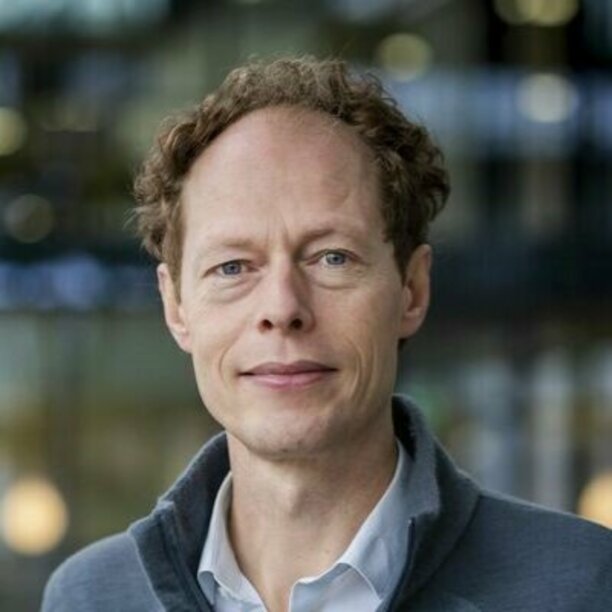Climate funding: how to put the money where the mouth is
Since money makes the world go round, the financial system is crucial in addressing climate change. But how can we adjust this system in such a way that they help adapt to and mitigate climate change? That is the main question underlying Pieter Pauw’s research. Since 2022, he has been working as a university researcher at TU/e’s Department of Industrial Engineering and Innovation Sciences.
After obtaining his Master’s degree in Environment and Resource Management at the VU University in 2008 and having worked for three years at the Institute for Environmental Studies there, Pieter Pauw left for Germany. There he worked for the German Development Institute in Bonn (now IDOS) and the Frankfurt School of Finance and Management where he conducted research and provided policy advice on international climate policy, adaptation finance and equity. In the meanwhile, he also obtained his PhD from Utrecht University. In 2022, he came back to the Netherlands, attracted by a foundation funded project of which TU/e acted as a project lead.
An inconvenient truth
‘The release of the American documentary film An inconvenient truth by Al Gore in 2006 was a pivoting moment in my choice of career,’ Pauw recollects when asked about how he ended up researching climate funding and climate policy. ‘As a reaction to this movie, you’d find debates everywhere in the country between climate change believers and deniers. At that time, I wanted to become a researcher because I thought that if only we could present all the facts, we would be able to put climate change to a halt. In hindsight, of course that was rather naive.’
During the 2009 United Nations climate change summit in Copenhagen, developed countries pledged to mobilize 100 billion dollar per year of climate finance to support developing countries with mitigation and adaptation. That immediately caught Pauw’s attention. ‘Who was going to manage this funding? How was it going to be spent? And in particular, what does it mean to ‘mobilize’ private finance to meet this target? Ever since, I have been delving into questions like these.’
Until recently, ‘finance’ in the context of climate change was related only to support from developed to developing countries. A clear example is the agreement reached at the first day of the COP28 in Dubai, when delegates agreed on the operationalization of a fund that would help compensate vulnerable countries coping with loss and damage caused by climate change. At TU/e, Pauw is following the further development of such funding schemes. However, the amount of finance that can be provided by developed countries will always fall short of the total need, and that is why the financial system as a whole requires a transformation, he states.
Large actors
‘My research is mainly problem-driven. I look at large actors like governments, central and commercial banks and pension funds, and how they can change their ways of working in such a way that they can help mitigate climate change instead of promoting it.’ Last year, together with colleagues, Pauw wrote a chapter for the Emissions Gap Report – a flagship report by the United Nations Environment Program. ‘We indicated that investments in things like renewable energy need to rise faster, whereas investments in fossil fuels need to rapidly decline if we want to meet the goals of the Paris Agreement. However, the financial system is very inert, and the actors in it such as commercial banks, insurers, central banks and regulators only have climate change as a secondary priority at best. In addition, most actors in the financial system only align their activities with the aims of the Paris Agreement to a limited extent compared to the total scale of their activities. External forces of climate policy-setting by governments as well as financial regulators and supervisors are therefore necessary for these actors to do more and move faster to address the climate crisis, both individually and as a system. This is easier said than done: research on the transformation of the financial system is still in its infancy and time pressure is very high.’
Educate public and policymakers
Where in his early days as a scientist, Pauw thought that the solution to climate change was in the hands of researchers, now he is convinced that it is mainly up to policymakers and the public to make the change happen. That is also the reason why he is very active in the public debate. Pauw has written numerous op-eds and often is consulted by the media to comment on climate change policies. ‘I want to educate both the public and policymakers and show them what is and is not possible based on the latest scientific insights. Especially toward policymakers I think it is our duty as researchers to prevent them from spending time and money on things that are proven to be ineffective.’ Closer to home, Pauw also joined the organizing committee of the EnergyDays. ‘Those afternoon sessions are very useful to stimulate debate among students, colleagues and people from outside of university on what is technically feasible, and where we also need behavioral change.’
How to solve the climate crisis in a just and fair way is a hard problem, he sighs. ‘There is so little time, everyone has to do everything he can to turn the tide. Sometimes, I can get pessimistic about it all. But at the same time, I feel the obligation to be positive. As researchers, we can play an important role in accelerating the required changes. Let’s start with taking the climate effects of every innovation into account, just as we do with the financial consequences of new technology. Ask yourself the question “How is this innovation going to have a positive impact on our climate?” And if you cannot come up with a satisfying answer, then simply start working on something else.’
